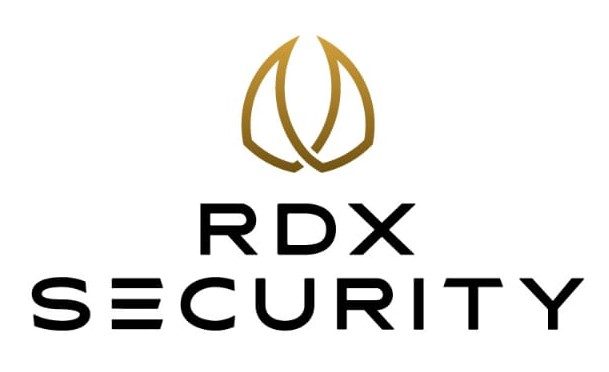Crypto Tax UK Guide
- March 2022
- 5 minutes
Is cryptocurrency taxed in the United Kingdom? Do you want to know how UK crypto tax works and how HMRC perceives Bitcoin and other cryptocurrencies? In our complete UK crypto tax guide for 2022, we’ve covered all you need to know about crypto tax in the UK. We’ll go through bitcoin capital gains tax, cryptocurrency income tax, which UK crypto exchanges report to HMRC, how to avoid paying cryptocurrency tax, and how to use a cryptocurrency tax calculator to figure out your taxes.
 Is crypto taxable in the UK?
Is crypto taxable in the UK?
Do you pay tax on crypto in the UK? Yes. You pay tax on cryptocurrency in the UK, so you need to know how to report it on your Self-Assessment.
 How is crypto taxed in the UK?
How is crypto taxed in the UK?
There is no specific Bitcoin tax or cryptocurrency tax in the UK. Instead, your crypto will either be subject to Capital Gains Tax or Income Tax.
The crypto tax you’ll pay depends on the specific transactions you’re making with your crypto. If you’re seen to be making an income, you’ll pay Income Tax. If you’re seen to be making a capital gain, you’ll pay Capital Gains Tax.
We’ll look at both.
 Crypto Capital Gains Tax UK
Crypto Capital Gains Tax UK
Because HMRC considers cryptocurrency to be a capital asset, when you sell it, you must pay Capital Gains Tax. Crypto disposal options include:
- Selling Crypto for GBP or another flat currency
- Trading crypto for crypto, including stable coins
- Spending Crypto on goods and services
- Gifting crypto-unless it is to your spouse or civil partner
As a result, whenever you sell, trade, spend, or give cryptocurrency in the UK, you will be subject to Capital Gains Tax.
Don’t worry, you won’t have to pay tax on the entire amount when you sell something. You’ll only be taxed on cryptocurrency profits, so anytime you make a profit.
Furthermore, HMRC has recently issued some guidelines on DeFi transactions, specifically lending and staking, however it does not provide much clarity. The guideline now indicates that DeFi transactions may be subject to Income Tax or Capital Gains Tax depending on the “nature of the transaction” and whether it is of the capital or income variety. In essence, a capital transaction occurs when you dispose of your cryptocurrency, regardless of whether you have the right to claim that cryptocurrency back or not. Examples of capital transactions include:
- Adding/removing your crypto in a liquidity pool – if the DeFi protocol can benefit from your liquidity.
- Staking your crypto through a DeFi protocol – though the return from staking may be charged under Income Tax.
 Do you pay tax on all crypto gains?
Do you pay tax on all crypto gains?
No, it does not. When it comes to capital gains, HMRC is quite liberal, providing every UK taxpayer with a Capital Gains Tax Allowance of £12,300. We’ll go into more detail later, but this means you’ll only pay Capital Profits Tax on capital gains that exceed your £12,300 exemption.
 Crypto Capital Gains Tax rates UK
Crypto Capital Gains Tax rates UK
Unlike many other countries, the UK doesn’t have a short-term and long-term Capital Gains Tax rate. All capital gains are taxed under the same rates. The amount of Capital Gains Tax you’ll pay depends on how much you earn.
- 10% Tax rate– basic band income band (up to £50,270)
- 20% tax rate– higher rate income band (up to £150,000)
- 20% tax rate– additional rate income band (more than £150,000)
So, as you can see, you’ll pay either 10% or 20% tax on any crypto gains, depending on what band you fall under.
If you earned less than £50,270 in 2021- you will pay 10% on crypto gains
If you earned more than £50,279 in 2021- you will pay 20% on Crypto gains
 How to calculate CGT on cryptocurrency UK
How to calculate CGT on cryptocurrency UK
To calculate tax on crypto gains, you need to start by figuring out your cost basis.
Your cost basis is how much it cost you to buy your crypto, plus any transaction fees. If you acquired your crypto by other means – like an airdrop or fork – you’ll take the fair market value of the crypto on the day you received in GBP it as your cost basis instead.
It’s simple to calculate your capital gain or loss once you have your cost base. A capital gain or loss is the difference in value between when you purchased the asset and when you sold, swapped, spent, or gifted it. Subtract your cost basis from the amount you paid for the asset. Subtract your cost basis from the fair market value of the asset on the day you disposed of it if you spent, traded, or gifted it.
If you make a profit, you have a capital gain and must pay Capital Gains Tax on it. If you have a loss, you have a capital loss, and you will not have to pay Capital Gains Tax on it – but you should keep note of these because they can reduce your tax burden. We’ll go over this in more detail later, but first, let’s look at an example of computing tax on a cryptocurrency capital gain.
 Crypto tax breaks
Crypto tax breaks
UK crypto investors can pay less tax on crypto by making the most of tax breaks.
- £12,570 Personal Income Tax Allowance: Your first £12,570 of income in the UK is tax free. This matters for your crypto because you subtract this amount when calculating what Income Tax band you’re in. Please note you do not get a Personal Income Tax Allowance if you earn more than £125,140 a year.
- Trading and Property Allowance: £1,000 of income from trading or property is tax free thanks to the Trading and Property Allowance. If you’ve got income from both, you can get £2,000 tax free.
- Capital Gains Tax Free Allowance: We know we’ve harped on about this already – but it’s a big deal. The UK has a Capital Gains Tax Free Allowance of £12,300. So you’ll only pay Capital Gains Tax after you’ve already gone over this allowance. Provided you make no more than £12,300 from capital gains in a single financial year, you’ll pay no Capital Gains Tax.
 Crypto capital losses
Crypto capital losses
You will not have to pay Capital Gains Tax on any capital losses, but you should keep track of them since you can offset capital losses against capital gains to pay less tax overall.
In the United Kingdom, there is no limit to the size of a capital loss that can be offset against capital gains. This implies you can use as many capital losses as you wish to decrease your capital gains to the Capital Gains Tax free allowed level of £12,300, resulting in no Capital Gains Tax.
If you’ve already offset enough capital losses to bring you back into the allowance amount – you can carry forward your capital losses to the next financial year to offset against future gains. Be warned though – capital losses in the UK expire after four years. So you can only carry a capital loss forward for a maximum of four years before you can no longer use it to offset your capital gains.
 Tax free crypto UK
Tax free crypto UK
Wondering when Bitcoin is tax free in the UK? What about other cryptocurrencies? Fortunately, you won’t always pay tax on your crypto in the UK.
You won’t pay tax on your crypto in the UK when you’re:
- Buying crypto with GBP.
- HOLDing crypto
- Transferring crypto between your own wallets
- Donating crypto to charity
- Gifting crypto to your spouse
 Tax on lost or stolen crypto in the UK
Tax on lost or stolen crypto in the UK
HMRC has clear guidance on lost and stolen crypto.
Lost crypto is not considered a disposal for Capital Gains Tax purposes as the asset still exists, even if the private key is lost. So, if you’ve lost your private key – you can’t claim this as a capital loss. However, if you can prove there is no chance of you recovering your private key and gaining access to your asset again – you can make a negligible value claim. If this claim is successful, you would later be able to claim your lost crypto as a capital loss.
Similarly, for stolen crypto – HMRC doesn’t view theft as a disposal so you can’t claim stolen crypto as a capital loss. There are a couple of very specific exceptions to this rule. For example, if you’ve bought crypto off an exchange but don’t receive your asset, this could be considered a scam and you could make a negligible value claim and later claim a capital loss.
 Income Tax on crypto UK
Income Tax on crypto UK
Now that we’ve covered everything there is to know about crypto capital gains, let’s move on to crypto income and income tax.
In some circumstances, cryptocurrency is recognised as income and hence subject to income tax. Cryptocurrency transactions considered as income are taxed at the same rate as your ordinary income tax bracket. In some cases, you may also be required to pay National Insurance contributions on your cryptocurrency earnings.
In the UK, crypto is taxed as Income when it comes from:
- Getting paid in crypto known as money worth and is subject to NI too
- Staking rewards
- Mining tokens
- Airdrops
HMRC has now issued rules on DeFi transactions, focusing on lending and staking. However, it does not actually clarify anything. The guideline now indicates that DeFi transactions may be subject to Income Tax or Capital Gains Tax depending on the “nature of the transaction” and whether it is of the capital or income variety. If your DeFi activities have the ‘nature of income,’ they will be taxed.
In general, Income Tax will only apply to ‘returns’ from activities, so rewards from staking, yield farming, lending and more could be considered income and subject to Income Tax. HMRC say it’s likely to be considered income if:
- The return to be received has been agreed- as opposed to speculative and unknown.
- If the return is paid by the borrower/DeFi platform
- If the return is paid periodically throughout the period of lending/staking
So, if you’re earning new coins or tokens, potentially at an agreed APY through a DeFi protocol – it’s likely this would be seen as income. Therefore, this could include:
- Earning new crypto tokens through yield farming on lending protocol like AAVE, Compound.
- Obtaining new liquidity pool tokens, governance tokens or prize tokens.
- Leading your crypto to platforms like NEXO to earn interest.
- Earn Crypto dividends on platforms like CoinRabbit
HMRC has not yet issued guidelines on engage-to-earn or play-to-earn platforms, which have lately arisen in the DeFi area. However, because earning cryptocurrency through staking and mining is deemed income, we may deduce that earning tokens and coins through these platforms is similarly likely to be considered income by HMRC. Here are some examples of prospective crypto income:
- Referral rewards like Binance Referral.
- Learn to earn campaigns, like Coinbase Learning Center or CoinMarketCap Learning Center.
- Watch to earn platforms like Odysee.
- Browse to earn platforms like Permission.io browser extension, Brave.
- Play to earn games like Axie Infinity.
- Shop to earn through browser extensions like Lolli.
- Share public address to earn on platforms like Moon Faucet.
 How much tax will you pay on Crypto Income?
How much tax will you pay on Crypto Income?
To figure out how much tax you’ll pay on crypto income, you need to first know the crypto Income Tax rates. These are the same Income Tax Bands for your regular income. For 2021 – 2022, the Income Tax Bands in the UK are as follows:
0%- Taxable income up to £12,570- band personal allowance
20%-taxable income £12,571-£50,270- basic rate
40%-taxable income £50,271-£150,000- higher rate
45%-taxable income £150,000+-additional rate
Begin by determining your income tax bracket. Then, add your additional crypto revenue to your usual income to see if you’re still in the same Income Tax Band. If you are, this is the amount of tax you will pay on your cryptocurrency earnings. This is the amount of tax you’ll pay on your cryptocurrency if your new income from it puts you into a higher Income Tax Band.
It’s important to note you don’t pay the same flat rate of Income Tax on all your earnings. For all English and Welsh taxpayers (bar those earning over £125,140) you’ll have £12,570 tax free for the 2021/2022 tax year. For the 2020/2021 tax year, this allowance was £12,500. Then you’ll pay 20% tax on your next £37,699 of income and 40% on the next £99,729 of income and 45% in tax on any income over this amount. So you’ll pay anywhere between 0% to 45% in tax for your crypto.
 Can HMRC track crypto?
Can HMRC track crypto?
Yes – HMRC can track cryptocurrency.
HMRC confirmed a couple of years ago that they were working with large crypto exchanges to share customer information provided from Know Your Customer (KYC) identification records. HMRC is using this information to send nudge letters to crypto investors reminding them to report their crypto and pay their taxes.
 Which crypto exchanges report to HMRC?
Which crypto exchanges report to HMRC?
But what about your particular UK cryptocurrency exchange? Does Binance file tax returns with HMRC? What about Coinbase and the UK Revenue and Customs?
So yet, they’ve only named two crypto exchanges. But, before you exhale a sigh of relief, keep in mind that just because HMRC hasn’t mentioned the cryptocurrency exchange you use doesn’t mean they haven’t contacted them. HMRC is tightening down on cryptocurrency, thus it is safe to assume that HMRC has contacted all of the major cryptocurrency exchanges operating in the UK, including Binance, Kraken, KuCoin, Gemini, CoinJar, Crypto.com, Bittrex, and Gate.io.
You might recall that in 2020, Coinbase handed over data on UK customers who transacted more than £5,000 worth of cryptocurrency between 2017 and 2019.
 Centralised and decentralised exchanges
Centralised and decentralised exchanges
The way HMRC is able to deal with individuals’ cryptocurrency taxes depends on what type of exchange they were using.
Centralised exchanges, such as Binance and Kucoin use a system referred to as KYC – Know Your Customer, which requires an Identify check to find out where you live and who you are, so your trades can be verified to you, similar to stock market trading.
Due to this KYC Identity check, your information will be passed along to HMRC, making them aware of any losses or gains you may have made in the past year.
Decentralized exchanges, on the other hand, such as Pancake Swap or Uniswap, do not require any KYC and are totally decentralised, frequently referred to as DeFi, or Decentralised Finance due to the lack of a centralised organisation. Users that engage in DeFi through private wallets, where only they have access to the keys, are significantly more difficult to trace down for HMRC and must personally ensure they are reporting their taxes correctly.
Remember: HMRC will come after you if you make a substantial deposit of cash into your bank account or a large deposit of cryptocurrency, whether bitcoin, altcoins, or stablecoins, into an exchange wallet that you own.
 Do you pay tax when you buy crypto in the UK?
Do you pay tax when you buy crypto in the UK?
Yes and no – it depends what you’re buying crypto with. Let’s break it down.
Buying crypto with GBP
You’re not taxed when you buy crypto with fiat currency – like GBP – in the UK.
But, it’s really important you keep records of your crypto transactions so you can keep a detailed account of your cost basis. This makes sure you can accurately calculate your crypto gains and losses later on.
Buying and HODLing crypto
Waiting for the moon? Great plan and great news for your taxes. You’ll pay no tax on crypto you HODL.
Again, do make sure to keep records of how much it cost you to acquire your crypto so you can accurately calculate your capital gains and losses later on.
For those long-term HODLers, it may be worth using a platform that tracks and stores trading information for long periods of time, as exchanges often only keep information for 3 to 6 months.
Buying crypto with crypto
Crypto trading in the UK is taxed. So if you’re trading Bitcoin for Ether or any other cryptocurrency – you’ll pay Capital Gains Tax. HMRC view this as too separate transactions. Trading your asset is a disposal – just like selling or spending it. They’re not interested that you’re using it to buy another asset, just that you’re disposing of one. So it is the asset you dispose of that you’ll pay Capital Gains Tax on, if you’ve made a gain.
To calculate your capital gain, you’d use the cost base of the crypto you disposed of and subtract it from the fair market value for that asset on the day you traded it for another crypto.
Buying crypto with stablecoins
Stablecoins are cryptocurrencies that are pegged to a reserve currency, often a fiat currency. For example, the cryptocurrency USDT is tethered to the US dollar. This allows for reduced price volatility
Buying crypto with stablecoins is viewed as trading crypto for crypto, so any profits are subject to Capital Gains Tax.
Of course, you may not actually pay any tax on these transactions as stablecoins are often pegged to a fiat currency and therefore the price remains relatively stable, so you’ll have no capital gain or loss when you trade stablecoins for another cryptocurrency.
Despite this, you’ll still need to keep record of these transactions for HMRC.
 Do you pay tax when you sell cryptocurrency in the UK?
Do you pay tax when you sell cryptocurrency in the UK?
Yes – you’ll pay tax whenever you sell cryptocurrency in the UK. The amount you pay will vary depending on your income.
Selling crypto for fiat currency like GBP is a disposal and subject to Capital Gains Tax.
You’ll pay either 10% or 20% on the profits from your sale, depending on how much you earn in regular income.
Selling your crypto for another crypto is a disposal – so it’s subject to Capital Gains Tax.
To calculate your capital gain or loss, subtract the cost basis of the asset you disposed of from the fair market value of the asset on the day you traded it.
 Do you pay tax when transferring crypto?
Do you pay tax when transferring crypto?
No! You shouldn’t pay tax on your crypto when you’re transferring it between the wallets or exchange you use. This said – things are rarely this simple when it comes to UK crypto tax and transactions like transfer fees or adding and removing liquidity are a little more confusing from a tax perspective.
Transfer fees
When you transfer your crypto – your wallet provider or crypto exchange will often charge you a transfer fee to do so.
If you pay this transfer fee in fiat currency – like pounds – this is tax free.
However, in most instances you won’t be paying this fee in fiat currency, you’ll be paying it in cryptocurrency and spending crypto is a taxable event. It’s seen as a disposal of an asset and you’ll need to pay Capital Gains Tax on any profit.
HMRC has pretty specific guidance on what is an allowable cost in crypto. These are costs you can add to your cost basis and transfer fees are not included in this list. So we can safely assume transfer fees cannot be added to your cost basis and they would be viewed as disposals in some instances.
Adding or removing liquidity
Deep into DeFi? Most DeFi protocols use liquidity pools. If you’re investing in these, at a glance you might not think of them as a taxable event. They’re more akin to transferring your crypto from one place to another because you’re not actually disposing of the asset.
HMRC however disagrees. They say if you receive a liquidity pool token in exchange for your crypto – it’s a disposal. You can add up your cost basis based on tokens you’ve sent to the pool and then subtract that amount from the fair market value of the tokens at the point of disposal. Your liquidity pool tokens then inherit this as the cost basis for when you want to remove them from the pool.
 How are airdrops and forks taxed in the UK?
How are airdrops and forks taxed in the UK?
HMRC has clear guidance on how both airdrops and forks are taxed in the UK. It’s good news for forks, but bad news for airdrops. You’ll pay no tax on soft or hard forks in the UK. But you’ll pay both Income Tax and Capital Gains Tax on airdrops. Let’s break it down.
Soft and hard forks
HMRC has clear guidance on how they tax forks.
For soft forks, you’ll receive no new assets – you can’t pay any tax.
For hard forks, where you receive a new coin as a result of a fork – you still won’t pay any Income Tax on receipt of these coins. However, your cost basis from any coins received from a hard fork is derived from your existing tokens from the previous blockchain – not the fair market value of the coin on the day you received it.
This matters because when you later spend, sell, swap or gift coins you received from a hard fork – they will still be subject to Capital Gains Tax at this point, just like any other crypto.
Receiving an airdrop
In most instances HMRC say you’ll pay Income Tax on airdrops.
HMRC consider airdrops income whenever you’ve done something to earn them. This could include actions as simple as sharing a social media post or being rewarded due to your previous trades on a given blockchain. So in most instances, your airdrops are going to be considered income and subject to Income Tax.
However, airdrops are not considered income if you receive them without providing some kind of service or action in return.
Selling or swapping coins from an airdrop
The bad news keeps on coming. Not only will you pay Income Tax when you receive an airdrop, but you’ll pay Capital Gains Tax when you later sell, swap, spend or gift coins or tokens you received from an airdrop.
Crypto gifts and donations tax
Gifting crypto in the UK is taxed. It’s seen as a kind of disposal and therefore subject to Capital Gains Tax.
However, you can gift crypto to your spouse or civil partner tax free and you can donate crypto to a registered charity tax free. Let’s look at each different transaction.
Gifting crypto to a friend
If you give cryptocurrency as a gift to someone other than your spouse or civil partner, you will have to figure out the market value (in pound sterling) of the crypto on the date that it was given away as a gift. This will be considered as sales proceeds for Capital Gains Tax purposes.
Importantly, if income tax has already been charged on the value of the tokens that are gifted, section 37 Taxation of the Capital Gains Tax Act 1992 will apply. This basically means that the “sales proceeds” will be reduced by the amount that has already been subject to income tax, and then be subjected to CGT.
Gifting crypto to your spouse or civil partner
You can gift crypto to your spouse or civil partner tax free in the UK. There is no limit on how much you can gift.
This might not seem like a big deal, but it is. This legal tax loophole can let you take advantage of each individual Capital Gains Tax allowance in your household, as well as potentially a lower Income Tax band – all reducing your overall Capital Gains Tax bill.
Crypto mining tax UK
Mining of cryptocurrency in the UK can either be considered as a hobby or as a full-fledged business. This will depend on several factors such as:
- Degree of activity
- Organisation
- Risk
- Commerciality
Hobby miners will pay Income Tax on mined coins, as well as Capital Gains Tax when they later dispose of those mined coins. Meanwhile, for business miners, mining income will be added to trading profits and be subject to Income Tax.
As a pastime, I mine cryptocurrency.
If your mining activity is categorised as a hobby, any money from mining must be recorded separately on your tax return under the heading “miscellaneous income.”
In this situation, your income will be the fair market value of the cryptocurrency at the moment you receive it in GBP.
Appropriate costs can be deducted from this income before it is added to your taxable income, which can be found here.
Keep in mind that when you sell this cryptocurrency, you will be subject to Capital Gains Tax.
Mining as a business
If mining is classified as a business based on the criteria mentioned above, then the mining income will be added to trading profits and be subject to Income Tax. Similarly, fees or rewards received in exchange of any mining/staking activity will also be added to taxable income. Appropriate expenses would be deductible, of course.
While disposing of such cryptocurrency, any gain in value from the time of acquisition will be added to the trading profits. You will also have to pay National Insurance Contribution for this transaction.
DeFi crypto taxes UK
DeFi is a fairly new concept, but HMRC have now released proposed guidance about it as of February 2022. You might think it’s good news but it doesn’t really clarify too much as it all comes down to how your specific DeFi protocol works.
It all comes down to the ‘nature of the transaction’ and whether it has the nature of capital or the nature of revenue. The former would be subject to Capital Gains Tax, while the latter would be subject to Income tax. Helpful, right?
To try and simplify this a bit more, a lot of your DeFi trades are going to be seen as disposals now. This includes adding/removing liquidity, staking crypto and in some instances the rewards you receive from DeFi protocols – if you receive that reward in one large sum (like if you traded a liquidity pool token that had increased in value).
Meanwhile, returns may be seen as income in some instances. HMRC say this is more likely if:
- The return to be received has been agreed – as opposed to speculative and unknown.
- If the return is paid by the borrower/DeFi platform.
- If the return is paid periodically throughout the period of lending/staking.
So if you’re earning new tokens or coins on a periodic basis through your DeFi activities – this is more likely to be seen as income and subject to Income Tax.
 When do you need to report your crypto taxes to HMRC?
When do you need to report your crypto taxes to HMRC?
The UK financial year runs from the 6th of April to the 5th of April the next year.
So the financial year you’ll be reporting on in 2022 is from the 6th of April 2020 to the 5th of April 2021. You need to report your taxes for this financial year by the 31st of January 2022.
- You’ll declare all your crypto taxes in your Self Assessment Tax Return. HMRC have now extended the Self Assessment Tax deadline to the 28th of February 2022 in light of the Covid-19 pandemic.
- However, interest is still payable starting February 1st 2022, meaning you should still aim to file your taxes by 31st January 2022.
 What kind of records might HMRC ask for?
What kind of records might HMRC ask for?
As far as crypto record keeping is concerned, HMRC correctly states that many exchanges do not keep detailed information about crypto transactions and the onus of maintaining these transactions accurately rests with the taxpayer. These details include:
- the type of crypto asset
- date of the transaction
- whether the crypto assets were bought or sold
- the number of units involved
- value of the transaction in pound sterling
- cumulative total of the investment units held
- bank statements and wallet addresses, as these might be needed for an enquiry or review
You should ensure you download reports regularly from your exchanges as they can lose your data or just delete it permanently after a certain period of data.
 UK cost basis method
UK cost basis method
The UK’s HMRC has very specific rules for crypto cost basis methods, known as share pooling. This is to stop crypto investors from manipulating the ACB cost basis method by purchasing and selling assets at a loss in a short period of time to create an unrealistic view of gains and losses.
In the UK, there are three possible cost basis methods you can use and you need to work through them in order of which applies to your assets:
- Same-Day Rule: If you buy and sell coins on the same day, you need to use the cost basis on this day to calculate your gains/losses. If you’re selling more than you bought on that day, move onto the next rule
- Bed and Breakfasting Rule: If you sell and repurchase the same coins/tokens within 30 days, you’ll use the cost basis of coins/tokens you bought within this month to calculate your gains/losses. If you’re selling more than you bought within this month, move onto the final rule.
- Section 104 Rule: If the above two rules don’t apply to any of your crypto transactions, you need to use this cost basis method when calculating your crypto taxes. This works like the ACB method in that you calculate an average cost basis for a pool of assets by adding up the total amount paid for all assets and dividing it by the total amount of coins/tokens held.
 How to pay tax on cryptocurrency UK
How to pay tax on cryptocurrency UK
Once you’ve filed your Self Assessment Tax Return with HMRC reporting your crypto gains and income – HMRC will let you know how much tax you owe on your crypto. You’ll need to pay cryptocurrency taxes by the 31st of January 2022.
This is the same deadline as filing your taxes, so we recommend doing this before this date so you’re not stuck in the lurch with a large tax bill that needs paying straight away!
 How to avoid paying tax on cryptocurrency UK
How to avoid paying tax on cryptocurrency UK
There are ways to strategically – and legally – reduce your crypto taxes. To potentially pay less tax in January 2023, you’ll need to make your move before the end of financial year – so by April 05 2022.
- Hold it for a year
- Take advantage of tax-free thresholds
- Invest crypto into a pension fund
- Switch your tax rate
- Make a crypto donation
- Gift crypto to other
- Invest in an opportunity zone fund
- Use a crypto calculator to spot losses
- Claiming losses to defunct coins
- Sell your crypto in a low income year.
 Leveraging deductible costs
Leveraging deductible costs
There are certain allowable costs that can be deducted from the sales proceeds when calculating the gain or loss. They are:
-The consideration (in pound sterling) that was originally paid to acquire the crypto asset
-The transaction fees that are paid before the transaction is added to a blockchain
-Any exchange fees related to trades
-Professional costs for drawing up the contract for both acquisition and disposal of the asset
-Costs related to advertising for a purchaser or vendor
-Costs of making an apportionment or valuation in order to calculate the gains or losses
 The following costs are not allowable for CGT purposes:
The following costs are not allowable for CGT purposes:
–Any costs that have already been deducted against profits for Income tax
-Costs of mining activities (such as electricity and equipment). That’s because in the case of individuals mining crypto as a hobby these costs are not wholly attributable to mining crypto. However, some of these costs can be deducted against profits for Income Tax or when the mining equipment is disposed of.
In case mining is being done as part of a business, the crypto assets will form part of trading stock. If they are transferred out of trading stock, the business will be treated as if they bought the crypto at the value that’s being used in the trading accounts. This value can then be used as an allowable cost when they decide to dispose of the crypto assets.















